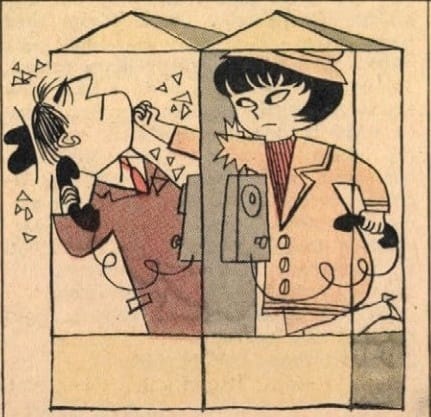Of Cats and Communards
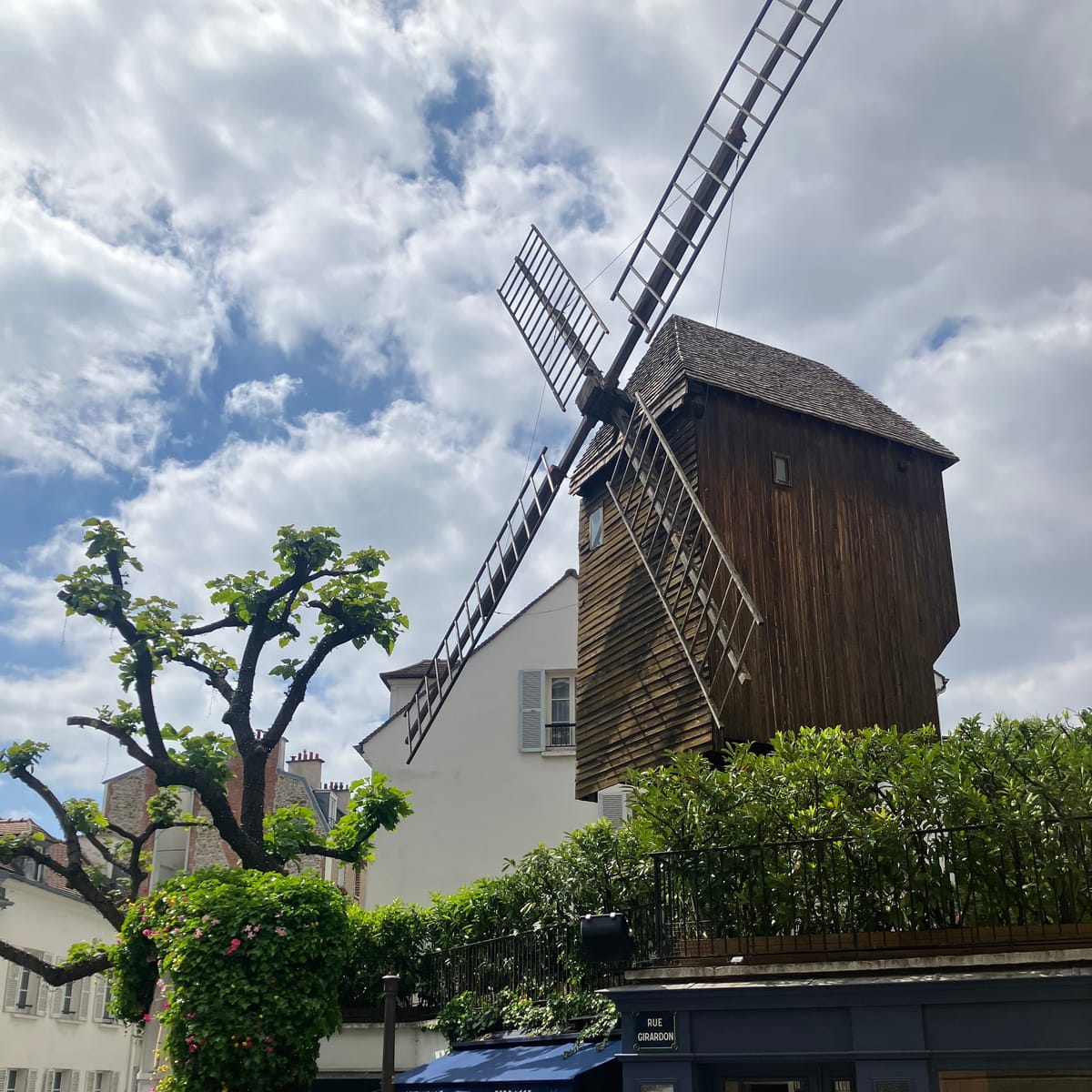
Half way through our visit we moved to a hotel in the famous Montmartre district.

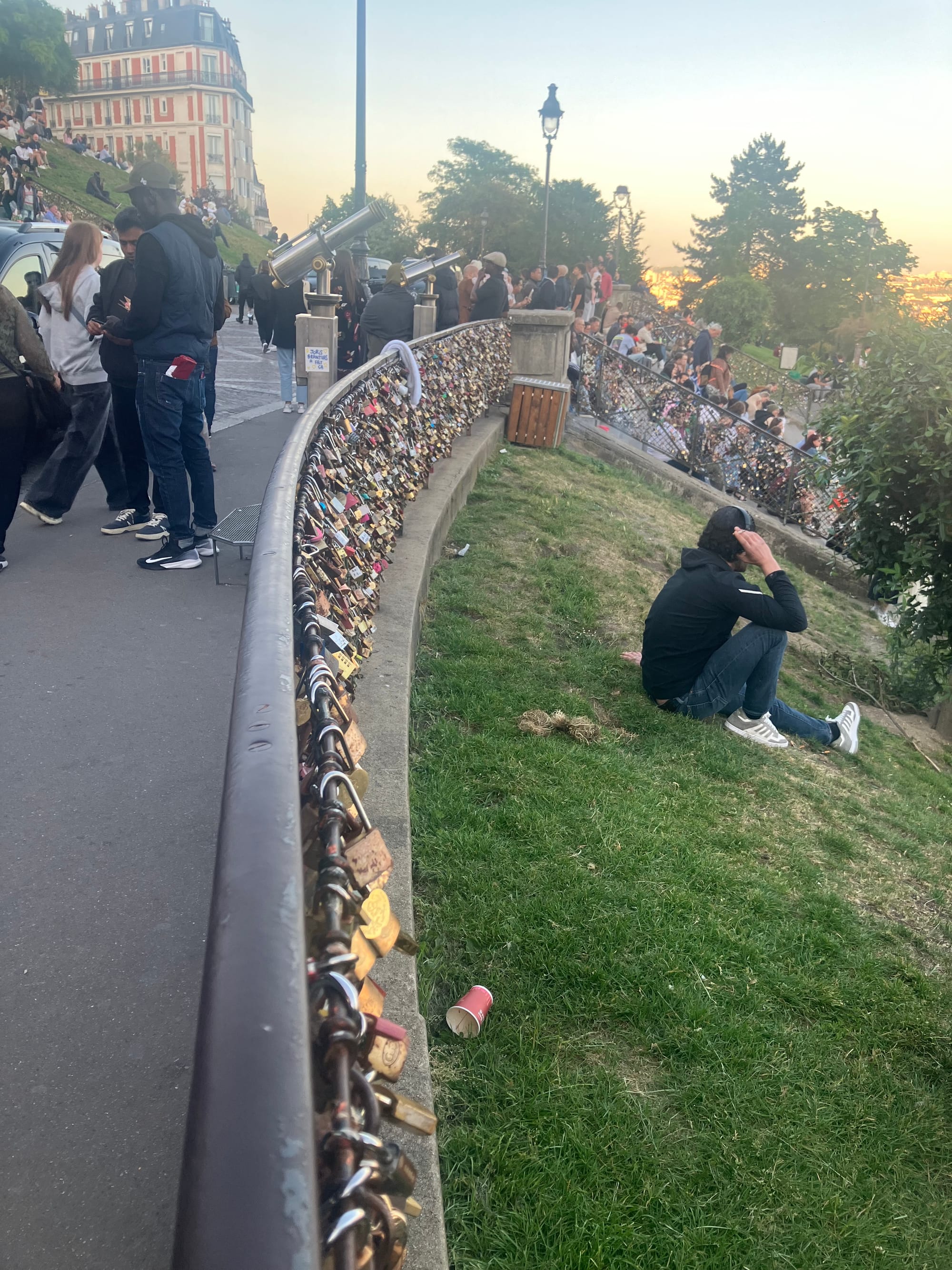
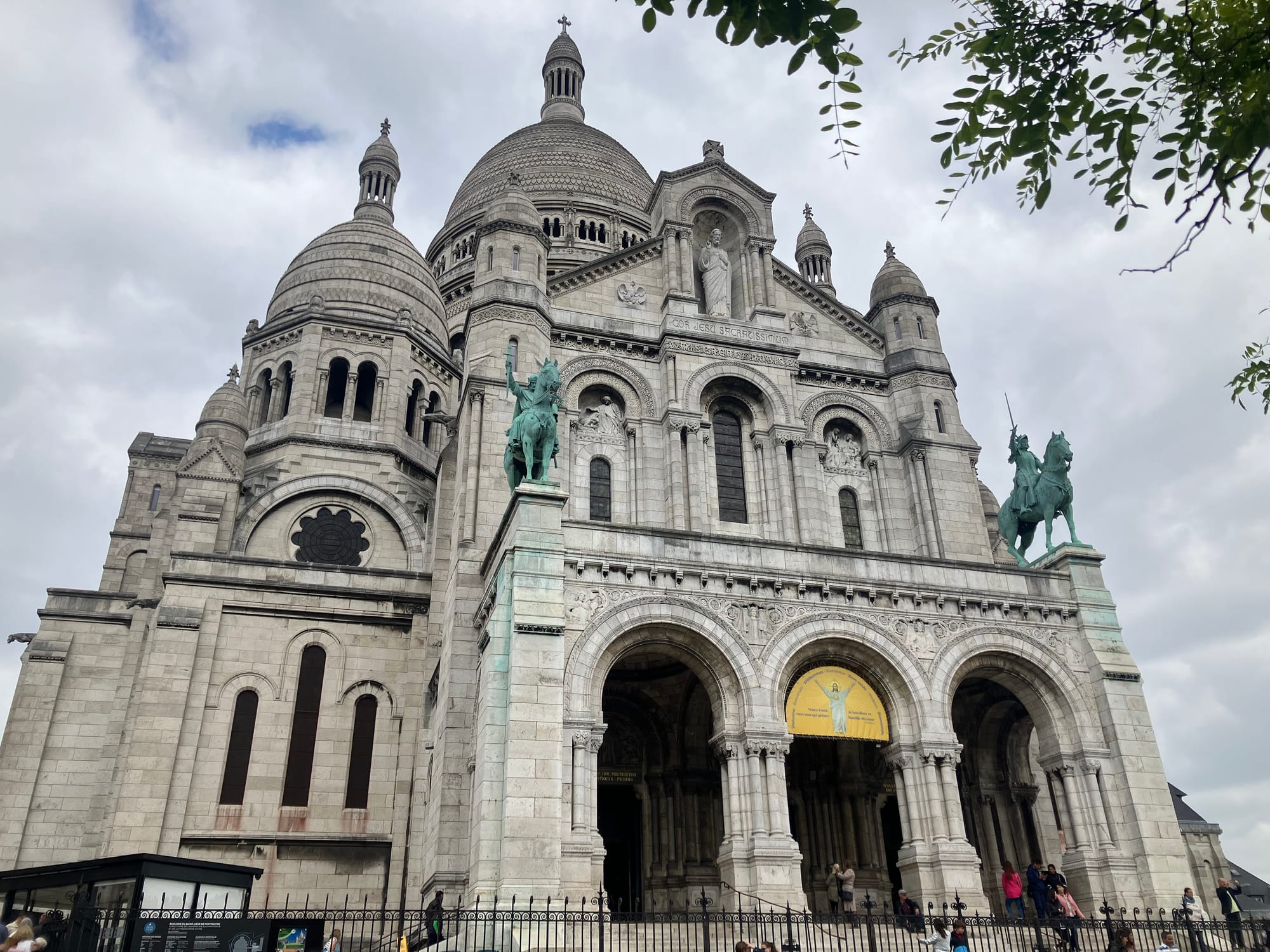
A view from the top near the church (Sacré-Coeur). Also pictured is a very modest crowd for this area and all the locks tourists insist on putting on the fence.
Montmarte is known for:
- Its elevation - beautiful views and strategic position
- Its former independence from Paris (made into the 14th Arrondissement late)
- Its radicalism - most evident with the Paris Commune
- Gypsum mining, which, before they put a stop to it, was on its way to causing the whole hill to collapse
- The moulins (windmills) that powered that production
- The art scene, which eventually included those moulins-turned-event-spaces, the most famous of which was and remains the Moulin Rouge.
There was a commune before 1871, during the French Revolution. Paris was such a metropole even then it should come as no surprise that demands for self government followed.
The more famous one, in 1871, was the product of the disaster of the Franco-Prussian war. No one pays any attention to this war, but it it's basically the domino meme that ends with a mushroom cloud over two Japanese cities.
Anyway Paris was under siege by the Prussians and a news-junky population suddenly, as is common with isolation, got really weird and introspective. They used the fairly new and extremely unreliable technology of ballooning (more or less invented in France by the Montgolfier brothers, which is why the word in french for "hot air balloon" is still just montgolfier) to get information out. They even sent a guy who managed to rally the French in the Loire Valley and open another front to annoy the Prussians. Mostly just annoy them, because the war turned from bad to worse almost immediately for the French. [[1]]

Political clubs started forming. The left demanded the arming of workers. Neo-Jacobins and Blanquists - socialists of various kinds - were the leading edge of the movement. There was an initial joke insurrection that involved a couple of hundred people storming the town hall and getting rolled up almost immediately [[2]]. The insurrectionists managed to get a promise for democratic elections that was instantly reneged on by the interim national government. Everyone settled into a long siege. The rich were lucky enough to dine on rats - everyone else got stale bread at near starvation levels. This unequal distribution of food was one of the things that would come back to haunt the government of national unity.
The Prussians under Bismark succeeded at their actual war aim on Jan 18 1871. In the Palace of Versailles the new German Empire was proclaimed. This was the Second Reich, for those keeping score [[3]]. They declared it in the same room - the Hall of Mirrors - where, almost 50 years later, the winners of WWI would return the humiliation in the Treaty of Versailles, a principal cause of WWII [[4]].

Much like the Lost Cause of the Confederacy myth and the Stab-in-the-back myth that many Germans subscribed to after WWI [[5]] the Parisians during the Franco-Prussian war believed the new national government was intentionally throwing the fight [[6]].
The treaty that ended the Franco-Prussian war was indeed very humiliating and costly. They lost Alsace-Loraine. The indemnity was about 25% of the French GDP [[7]]. 50,000 people had died in the siege, a lot of them children. The anger the resulted powered the formation of the Paris Commune and the start of a brief civil war [[8]].
The Garde nationale or National Guard in France has a storied history of drifting into radicalism and then being disbanded [[9]] and the Paris Commune happened because of one of those times. They started electing their officers and formed a central committee full of socialists. A general French rump election produced a heavily monarchist central government that antagonized Parisians by setting up in Versailles, lifting the wartime moratorium on rent and debt collection, and straight up stopped paying the National Guard.
But it was finally here in Montmartre where the fuse was lit: the central government ordered the army to seize cannons the National Guard had taken when the French army in Paris retreated. They did, but forgot to bring horses. Remember: all the veteran troops of the French Army had either been scattered or were in German POW camps [[10]]. Word spread and they were surrounded by angry mobs. They new army recruits refused to fire into the crowd and instead joined the insurrection. The generals in charge were summarily executed [[11]]. The red flag went up at the Hôtel de ville.
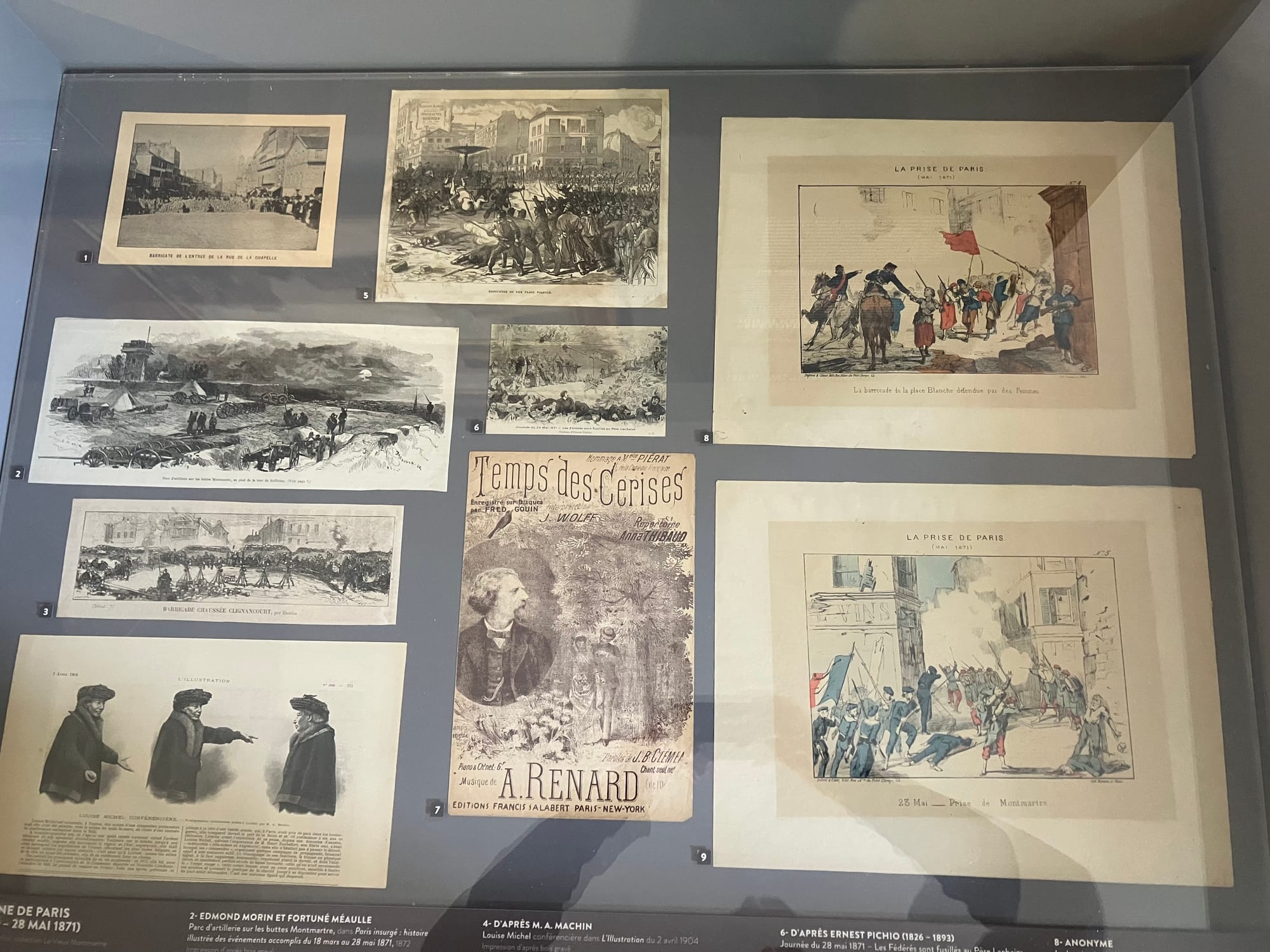
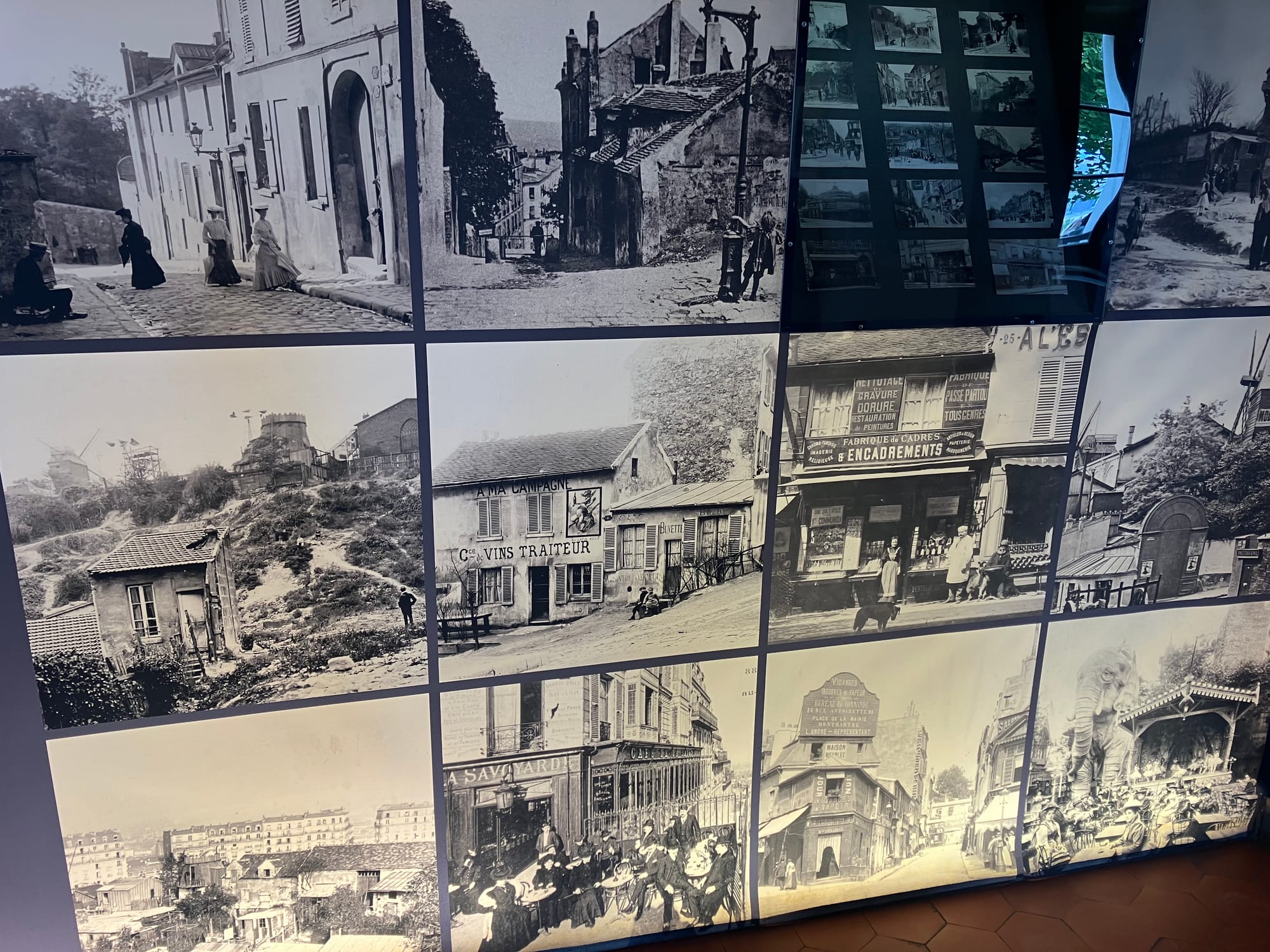
Photos and drawings of old Montmarte and the events of the Commune, courtesy of the Musée de Montmarte.
The Paris Commune only lasted two months. A lack of leadership and initiative - the government had succeeded in arresting a fairly critical socialist leader (Louis Auguste Blanqui) - allowed the newly formed Third Republic to retreat and reconstitute their forces. Some of the last holdouts in the city were in Montmarte.

It was after, during the Belle Époque (1971-1914), that Montmarte became ground zero for art and culture in Paris. Pierre-Auguste Renoir, Vincent van Gogh, and Pablo Picasso were all there at some point. The first cabaret - le Chat Noir - got started here and, I think, accurately portrays the general comportment of domesticated cats (jerks).

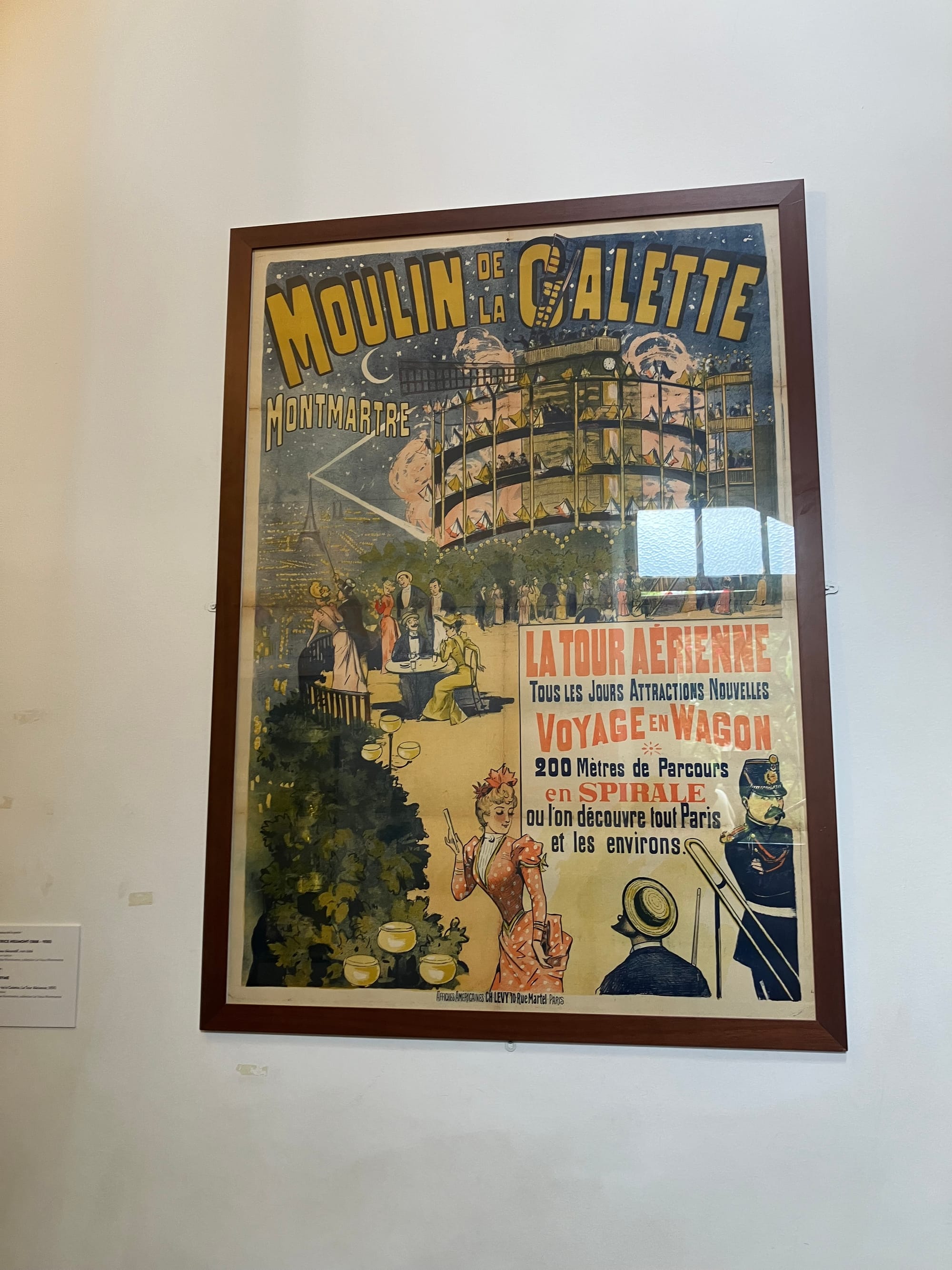
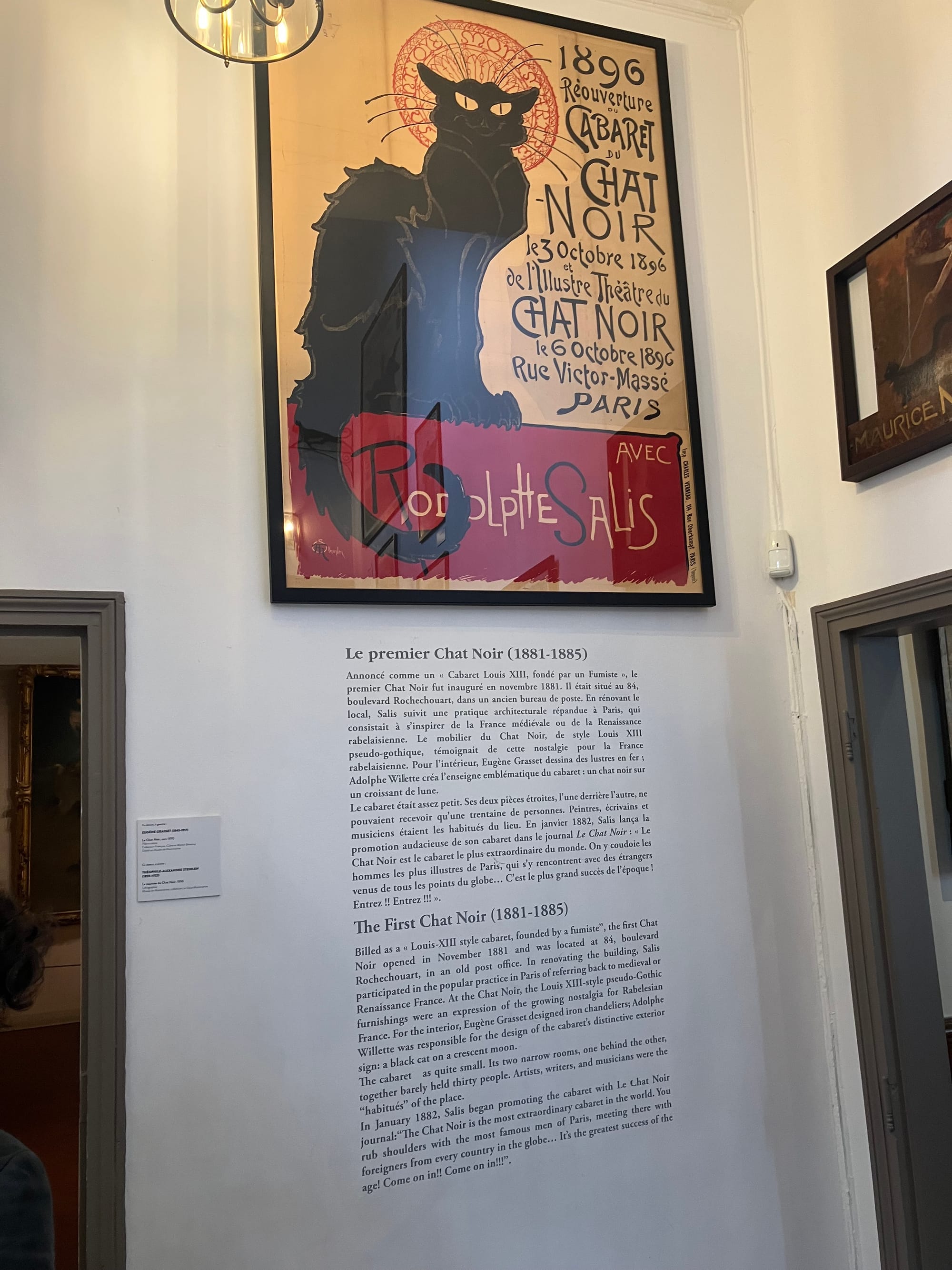
[[1]]: There is a whole post about how the Second French Empire, led by a fail-nephew of Napoleon who dubbed himself Emperor Napoleon III and who bears not a totally facile resemblance to Donald Trump and his rise to power, got into this position, but this post is pretty long
[[2]]: It isn't technically true that every real insurrection has a joke version as a prelude, but it's not uncommon
[[3]]: The first one was the Holy Roman Empire, which was famously none of the things found in the name. The third one might have been the most evil government of all time (so far!)
[[4]]: There is a whole post about how the victors of WWII decided on a different kind of peace, why it lasted, and how the entire post-war enterprise is currently crumbling, but wow is this post long enough
[[5]]: And the now current myth that Donald Trump won the 2020 presidential election
[[6]]: They weren't. At least not at first. The Prussians were more organized, better led, and had a better rail network such that they could mobilize much faster. Napoleon III also stupidly believed other German states would feel threatened by the rise of Prussia, rather than respond to French aggression with unity
[[7]]: It wasn't a random amount, but was instead tied to what Napoleon I had demanded of the Prussians in 1807. Good thing that what goes around does not come around and blowback doesn't exist
[[8]]: Notably Germany also saw a revolution right after its loss in WWI which is rarely spoken of, but in many ways lays the political groundwork for infighting among the left wing parties that allowed for the rise of the Nazis
[[9]]: They recently fired it up again after a series of terrorist attacks in 2016
[[10]]: The conservative central government begged the Germans to let them out to help fight the commune. They happily obliged. Sure, Bismark and the new French Republic despised each other, but nothing brings conservatives together more than crushing a potential social revolution (wherever it is)
[[11]]: By their own troops. One of the first things the Commune did, as a guard against another Reign of Terror, was to outlaw the death penalty (like any civilized society should)



